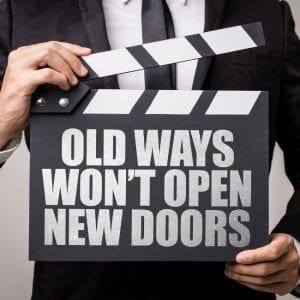 A quarter million dollars in lost profits in a single year. That is how much a $2 reduction in the average daily rate for a 500-room hotel with a 75% occupancy rate would cost a hotel.
A quarter million dollars in lost profits in a single year. That is how much a $2 reduction in the average daily rate for a 500-room hotel with a 75% occupancy rate would cost a hotel.
That’s a big number. But more than a loss, it also shows the power and potential of implementing next generation (or, better stated, Ònow generationÓ) hospitality revenue management solution. A truly integrated and more sophisticated system shows up in enhanced guest satisfaction, the ability to better target and attract new guests and enable smarter, more strategic financial decisions for a successful future.
Transform the traditional
Today’s hospitality revenue management solutions should support demand, or surge, pricing. That model, which began with the airlines and has been elevated by rideshare apps and companies, provides a lot of lucrative lessons for hoteliers. The first being that it can generate millions of dollars in additional profits annually, no matter the size of the hotel.
The key is for the system to make it easier for hoteliers and staff to access and apply complex guest and pricing data for better forecasting that increases room occupancy at the right price point. The best of these solutions automatically calculate demand forecasts for each future use of every hotel room, as well as each channel, recommending appropriate selling strategies such as the right price, stay controls, open/close room categories and overbooking levels.
It’s not just about the bottom line. In a recent Starfleet Media survey, 85 percent of respondents say that one of the biggest benefits to be gained from hospitality revenue management is a reduction in time and costs associated with traditional pricing tactics. By eliminating the need for manual data entry, which saves time and lowers the risk of reservation errors, staff can focus on guest satisfaction.
Remember more is not better
As the industry continues to usher in this new era of revenue management, properties will be gathering more data on guest segments, room types, historical booking, reservations data and length of stay. For a large property, that could add up to several hundred million observations. The right system not only scales to accommodate consistent data growth, it also lets users intuitively access only what information they need when they need it.
It’s also not enough to take a one-size-fits-all approach to choosing and managing revenue technology. Ultimately, that will not provide the information needed to continue to successfully appeal to our increasingly sophisticated guests, who are not as loyal to their brand as they are their search engine and mobile device.
Instead, the best hospitality revenue management solution has to be customisable and flexible. Guests are looking for a one-of-a-kind experience in entertainment and lodging and the system itself has to reflect that. At the same time, an investment should not need significant modifications. Instead, it would provide sort data with predefined parameters and alerts, with dashboard views based on roles and goals.
Hoteliers need to look at a revenue management solution’s integration compatibility with key systems across the property. Interconnectivity between the hotel property management system, marketing and sales, and distribution technology puts even more power into the hands of the user.
The ability to handle group sales is another important factor in successful revenue management. Hoteliers should be able to see suggested dates for flexible groups based on projected demand. This provides answers to crucial questions such as how many customer groups, by size, can be accommodated on a given day. Rooms are then priced accordingly.
Service beyond the solution
An integral part of a successful Revenue Management Solution is the vendor’s team: the individuals that implement, train and support the users at the hotel. A vendor that employs professionals with a hospitality background and revenue management experience who are based locally in each region would be a preferred option.
Look to the cloud
While large and full-service hotels that have been using revenue management for a decade or more have enjoyed an increased RevPar of 10%, on average, midsize and limited service hotels have benefited as well. Those properties show an average increase of 7.5% increase in RevPAR. Studies also show that 75% of larger hotels employ revenue managers, while 25% of smaller hotels have at least one revenue manager, who may have responsibility for multiple properties.
Meanwhile, all hotels, be it small or large recognise that cloud deployment can help them achieve their own revenue management goals. Cloud implementation means no additional hardware purchases or hiring of more IT staff. The system is guaranteed to continuously handle growing volumes of data and always assures that the most current software versions are up and running.
A recent report found 86 percent of respondents from large and full-service hotels, and 63 %Ê of mid-size and limited service hotels, all say that upgrading their hospitality revenue management capabilities have improved financial results. However, all systems are not created equal, and sustainable success and growing profit depend on smart system choices.
About the author
 Stan van RoijÊCRM is the Vice President of Hospitality Solutions and Program Management at Infor. Prior to this role, he was the Managing Director for EzRMS at Infor, becoming an expert at anything and everything related to revenue management technologies. He previously held positions at NH Hoteles, The Rezidor Hotel Group and Marriott International. Van Roij has more than 20 years of experience in the hospitality industry and with more than 15 years of that being in managerial roles. He is a member of the HSMAI EMEA advisory board for revenue management. Most recently, Van Roij was named one of HSMAI’s Top 20 Extraordinary minds for 2016 in EMEA.
Stan van RoijÊCRM is the Vice President of Hospitality Solutions and Program Management at Infor. Prior to this role, he was the Managing Director for EzRMS at Infor, becoming an expert at anything and everything related to revenue management technologies. He previously held positions at NH Hoteles, The Rezidor Hotel Group and Marriott International. Van Roij has more than 20 years of experience in the hospitality industry and with more than 15 years of that being in managerial roles. He is a member of the HSMAI EMEA advisory board for revenue management. Most recently, Van Roij was named one of HSMAI’s Top 20 Extraordinary minds for 2016 in EMEA.



















